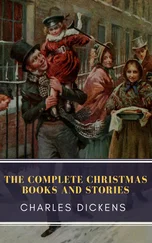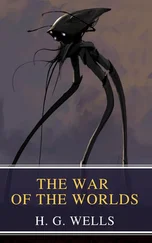I must employ you in some business
Against our nuptial, and confer with you
Of something nearly that concerns yourselves.
Ege.
With duty and desire we follow you.
Exeunt. [Manent Lysander and Hermia.]
Lys.
How now, my love? why is your cheek so pale?
How chance the roses there do fade so fast?
Her.
Belike for want of rain; which I could well
Beteem them from the tempest of my eyes.
Lys.
Ay me! for aught that I could ever read,
Could ever hear by tale or history,
The course of true love never did run smooth;
But either it was different in blood—
Her.
O cross! too high to be enthrall’d to [low].
Lys.
Or else misgraffed in respect of years—
Her.
O spite! too old to be engag’d to young.
Lys.
Or else it stood upon the choice of friends—
Her.
O hell, to choose love by another’s eyes!
Lys.
Or if there were a sympathy in choice,
War, death, or sickness did lay siege to it,
Making it momentany as a sound,
Swift as a shadow, short as any dream,
Brief as the lightning in the collied night,
That, in a spleen, unfolds both heaven and earth;
And ere a man hath power to say “Behold!”
The jaws of darkness do devour it up:
So quick bright things come to confusion.
Her.
If then true lovers have been ever cross’d,
It stands as an edict in destiny.
Then let us teach our trial patience,
Because it is a customary cross,
As due to love as thoughts and dreams and sighs,
Wishes and tears, poor fancy’s followers.
Lys.
A good persuasion; therefore hear me, Hermia:
I have a widow aunt, a dowager,
Of great revenue, and she hath no child.
From Athens is her house remote seven leagues;
And she respects me as her only son.
There, gentle Hermia, may I marry thee;
And to that place the sharp Athenian law
Cannot pursue us. If thou lovest me, then
Steal forth thy father’s house to-morrow night;
And in the wood, a league without the town
(Where I did meet thee once with Helena
To do observance to a morn of May),
There will I stay for thee.
Her.
My good Lysander,
I swear to thee, by Cupid’s strongest bow,
By his best arrow with the golden head,
By the simplicity of Venus’ doves,
By that which knitteth souls and prospers loves,
And by that fire which burn’d the Carthage queen
When the false Troyan under sail was seen,
By all the vows that ever men have broke
(In number more than ever women spoke),
In that same place thou hast appointed me
To-morrow truly will I meet with thee.
Lys.
Keep promise, love. Look, here comes Helena.
Enter Helena.
Her.
God speed fair Helena! whither away?
Hel.
Call you me fair? That fair again unsay.
Demetrius loves your fair, O happy fair!
Your eyes are lodestars, and your tongue’s sweet air
More tuneable than lark to shepherd’s ear
When wheat is green, when hawthorn buds appear.
Sickness is catching; O, were favor so,
[Yours would] I catch, fair Hermia, ere I go;
My ear should catch your voice, my eye your eye,
My tongue should catch your tongue’s sweet melody.
Were the world mine, Demetrius being bated,
The rest I’ll give to be to you translated.
O, teach me how you look, and with what art
You sway the motion of Demetrius’ heart.
Her.
I frown upon him; yet he loves me still.
Hel.
O that your frowns would teach my smiles such skill!
Her.
I give him curses; yet he gives me love.
Hel.
O that my prayers could such affection move!
Her.
The more I hate, the more he follows me.
Hel.
The more I love, the more he hateth me.
Her.
His folly, Helena, is no fault of mine.
Hel.
None but your beauty; would that fault were mine!
Her.
Take comfort; he no more shall see my face;
Lysander and myself will fly this place.
Before the time I did Lysander see,
Seem’d Athens as a paradise to me;
O then, what graces in my love do dwell,
That he hath turn’d a heaven unto a hell!
Lys.
Helen, to you our minds we will unfold:
To-morrow night, when Phoebe doth behold
Her silver visage in the wat’ry glass,
Decking with liquid pearl the bladed grass
(A time that lovers’ flights doth still conceal),
Through Athens gates have we devis’d to steal.
Her.
And in the wood, where often you and I
Upon faint primrose beds were wont to lie,
Emptying our bosoms of their counsel [sweet],
There my Lysander and myself shall meet;
And thence from Athens turn away our eyes,
To seek new friends and [stranger companies].
Farewell, sweet playfellow, pray thou for us;
And good luck grant thee thy Demetrius!
Keep word, Lysander; we must starve our sight
From lovers’ food till morrow deep midnight.
Lys.
I will, my Hermia.
Exit Hermia.
Helena, adieu:
As you on him, Demetrius dote on you!
Exit Lysander.
Hel.
How happy some o’er other some can be!
Through Athens I am thought as fair as she.
But what of that? Demetrius thinks not so;
He will not know what all but he do know;
And as he errs, doting on Hermia’s eyes,
So I, admiring of his qualities.
Things base and vile, holding no quantity,
Love can transpose to form and dignity.
Love looks not with the eyes but with the mind;
And therefore is wing’d Cupid painted blind.
Nor hath Love’s mind of any judgment taste;
Wings, and no eyes, figure unheedy haste;
And therefore is Love said to be a child,
Because in choice he is so oft beguil’d.
As waggish boys in game themselves forswear,
So the boy Love is perjur’d every where;
For ere Demetrius look’d on Hermia’s eyne,
He hail’d down oaths that he was only mine;
And when this hail some heat from Hermia felt,
So he dissolv’d, and show’rs of oaths did melt.
I will go tell him of fair Hermia’s flight;
Then to the wood will he to-morrow night
Pursue her; and for this intelligence
If I have thanks, it is a dear expense.
But herein mean I to enrich my pain,
To have his sight thither and back again.
Exit.
¶
Enter Quince the carpenter and Snug the joiner and Bottom the weaver and Flute the bellows-mender and Snout the tinker and Starveling the tailor.
Quin. Is all our company here?
Bot. You were best to call them generally, man by man, according to the scrip.
Quin. Here is the scroll of every man’s name, which is thought fit, through all Athens, to play in our enterlude before the Duke and the Duchess, on his wedding-day at night.
Bot. First, good Peter Quince, say what the play treats on; then read the names of the actors; and so grow to a point.
Quin. Marry, our play is The most lamentable comedy and most cruel death of Pyramus and Thisby.
Bot. A very good piece of work, I assure you, and a merry. Now, good Peter Quince, call forth your actors by the scroll. Masters, spread yourselves.
Quin. Answer as I call you. Nick Bottom the weaver.
Читать дальше












![Уильям Шекспир - The Works of William Shakespeare [Cambridge Edition] [Vol. 1 of 9]](/books/746589/uilyam-shekspir-the-works-of-william-shakespeare-c-thumb.webp)